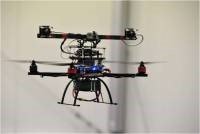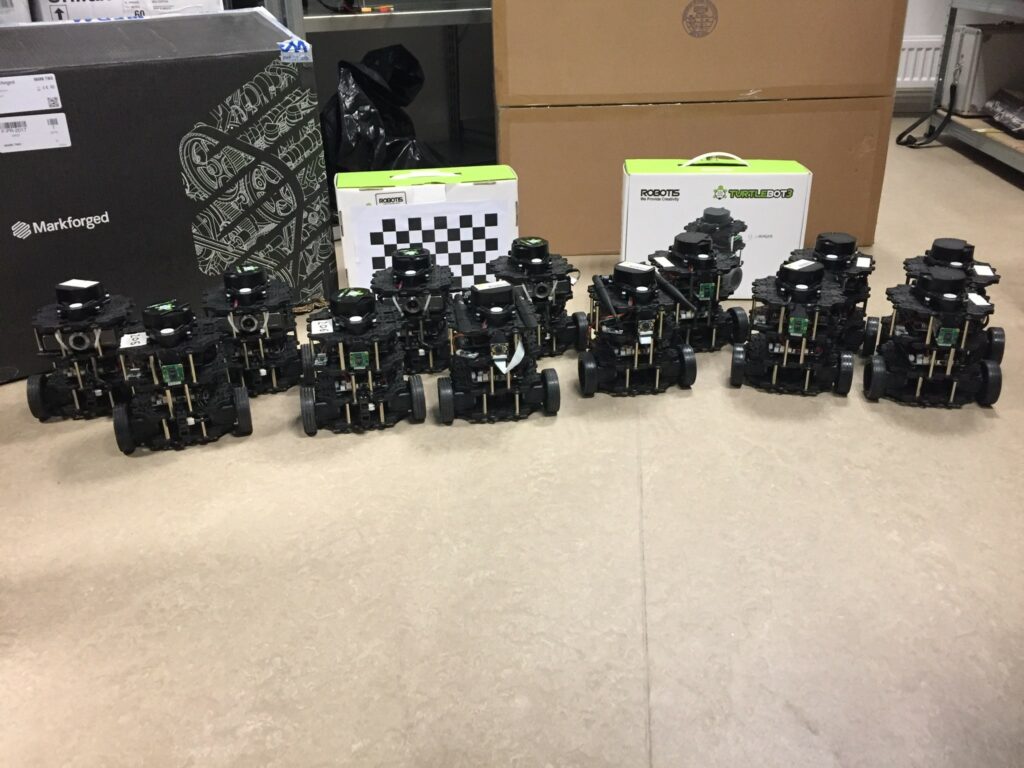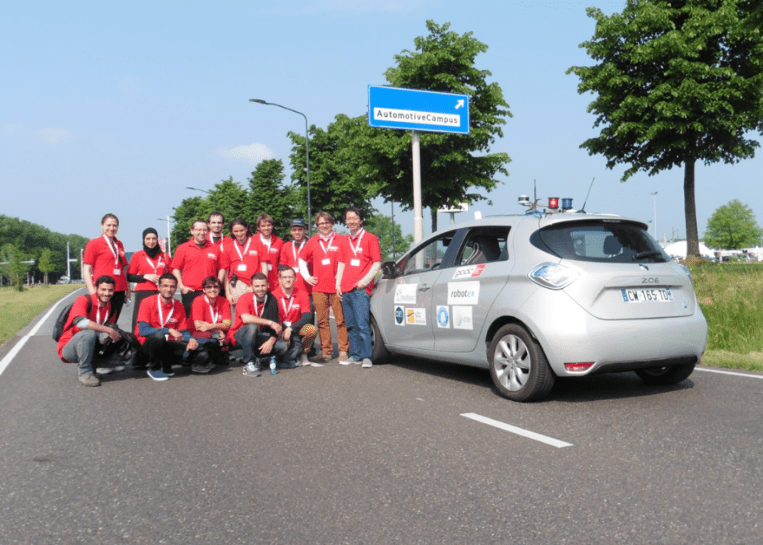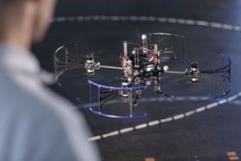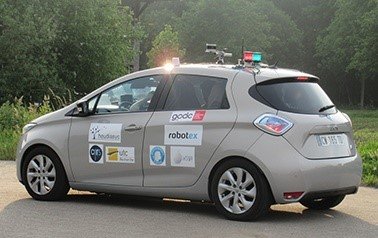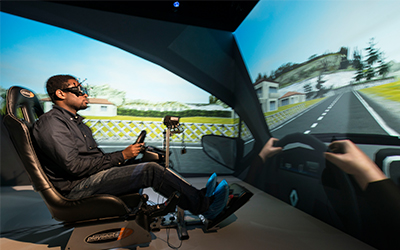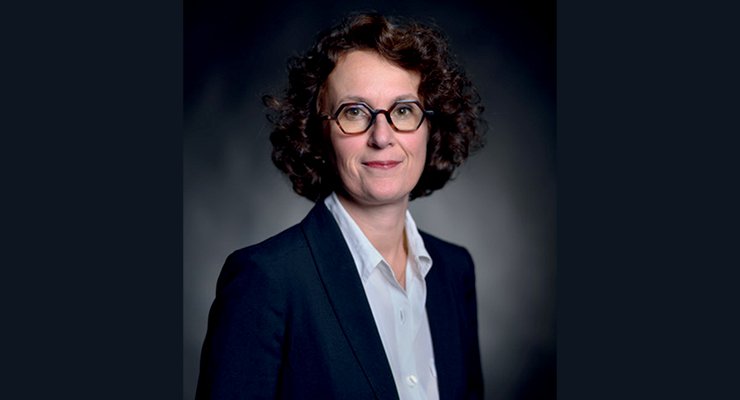Specialty – Embedded Computing and Equipment and Autonomous Systems (INES)
The objective of the INES programme (Embedded Computing and Autonomous Systems) is to train future managers capable of specifying, designing, developing and validating architectures and software for embedded systems that interact with the physical world through sensors and actuators. This course offers methodological and practical teaching on cyber-physical systems (a close link between physical systems and their interactions via appropriate communication and algorithms, cf. Figure below). The aim of the INES course is also to make students aware of the concept of systems operation under constraints: real-time, system security, computing power, energy consumption, etc.
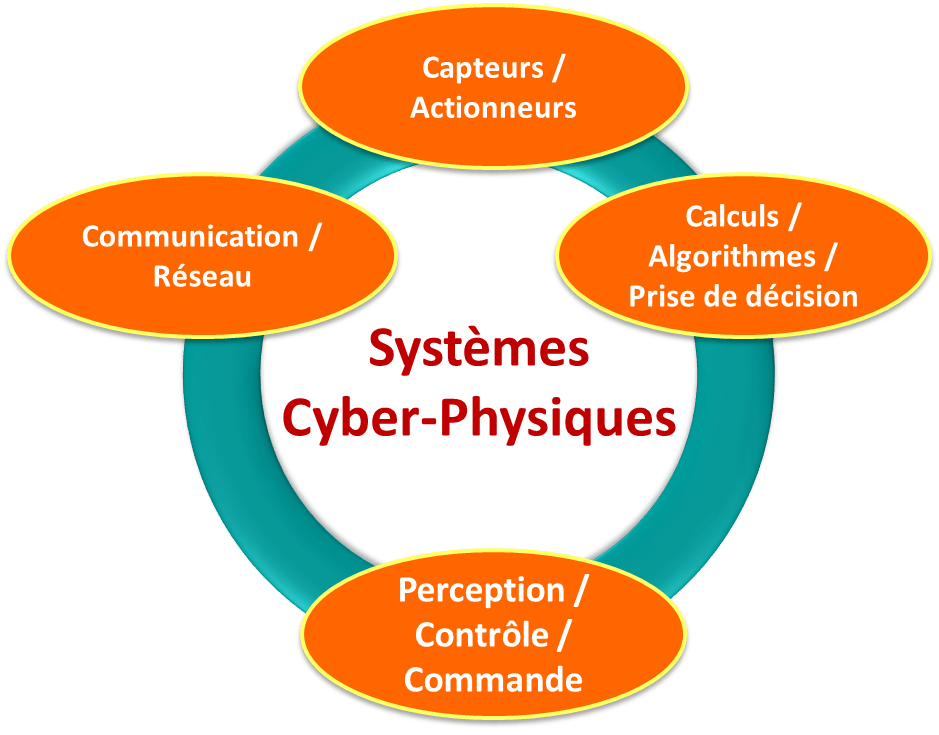
Course contents
6 PSF (Profil Spécifique de Filière) CC Modules
Spring session
- MI11: Real-Time Computing Systems and Embedded Development (TM: Techniques and Methods)
- SY15: Automation for robotics (CS: Scientific knowledge)
- SY32: Vision and Learning ™
Autumn session
- MI12 : Ingénierie des systèmes embarqués ™
- SY27 : Machines intelligentes ™
- SY28 : Systèmes cyber-physiques
7 UVs PCB (Profil Commun de Branche, fortement recommandées pour la filière INES)
GI01-GI02
- MI01 : Structure of an ECU
- SY31 : Sensors for Intelligent Systems
- SY08 : Modelling of discrete event systems
- SY14 : Introduction to Automation
GI04-GI05 (which complete the course modules)
- RV01: Virtual Reality, 3D
- SR05: Distributed Systems
- SR08: IoT (Internet of things)
The academic teaching team
The INES academic teaching team comprises 10 lecturer-cum-research scientists, 1 junior CNRS research officer and 2 research engineers. This UTC team also benefits from input from external industrial speakers.
Equipment
The INES academic teaching team comes mainly from CNRS UTC Heudiasyc UMR7253 research laboratory and, in particular and massively from the Heudiasyc Lab’s SyRI ranks (Robotic Interacting Systems) Robotiques en Interaction). SyRI has a leading national/international level of notoriety and visibility in the field of autonomous mobile systems.
Access to UTC’s research platforms is facilitated: robotic land and airborne vehicles; an immersive virtual reality (VR) room.
Placements/internships and industrial relations
End of studies project (code named TN10):
- A strong link with at least one of the themes of the sector
- Large groups and SMEs
Main fields
- Automotive (Renault, PSA, Continental, …)
- Aeronautics / defence (Safran, Thales, …)
- Logistics and the Factory of the Future (BA Systems, Valéo, …)
- Transport (Thales Rail, Alstom transports, …), health, telecommunications, etc.
International
Staying abroad (TN10, study semester, double degree, etc.):
- is strongly encouraged and commended
- there are several target universities: Waterloo Univ. (Canada), Princeton Univ. (USA), Cranfield Univ. (UK), Linkopings Univ. (Sweden), Univ. of Arturo Prat (Chile), etc.

Professional openings
The main job opportunities linked to the INES specialty qualification lie in the fields of transport, aeronautics, logistics and defence.
Examples of jobs: development engineer, research engineer, design engineer, technical director, project manager, process/method expert, safety/security expert, consultant, etc.

